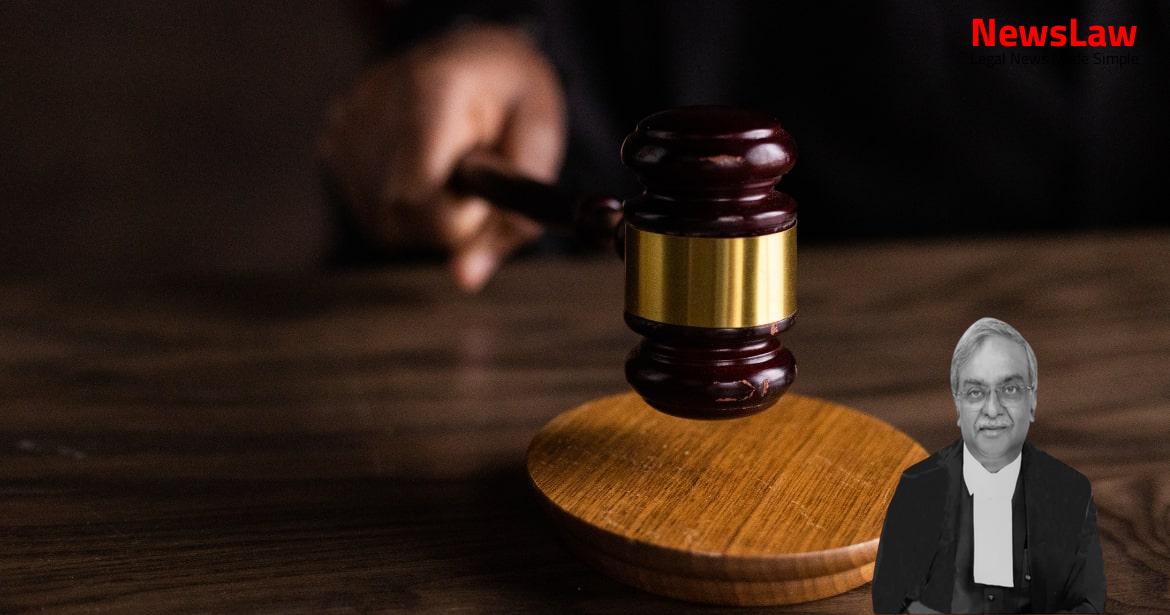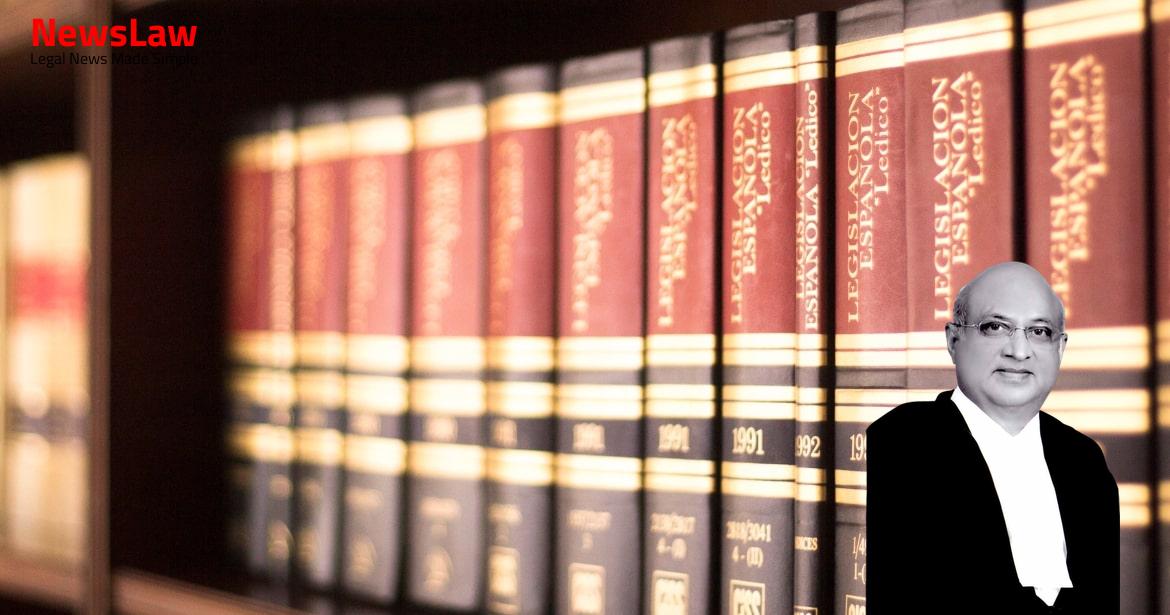The court’s scrutiny of a disciplinary inquiry case delves into the legal intricacies of procedural errors and adherence to natural justice principles. The focus is on the court’s analysis of the inquiry process, highlighting the importance of upholding proper procedures in disciplinary proceedings to ensure fairness and justice for all parties involved.
Facts
- The Presenting Officer and Chief Cashier did not sign the key register upon taking over charge of the keys of the cash safe/strong room, a violation of procedures.
- The Assistant Manager failed to maintain the key register for the transfer of keys between holders.
- The Assistant Manager did not ensure the safety and security of the branch when leaving on 10.11.99 in absence of the Manager.
- Charge nos. 1, 3, and 4 were found proved against Mr. K.K. Bhardwaj by the Inquiry Officer, based on documentary evidence and facts.
- Mr. Bhardwaj did not keep the keys with him overnight as per guidelines, leading to theft/loss of cash from the safe.
- He did not remit surplus cash to the Currency Chest as required, despite having a large cash balance.
- Laxity in security measures was evident on the day of the incident.
- The Assistant Manager did not ensure the closure of a rear gate before leaving the branch on 10.11.99, indicating negligence.
- Regulation violations and failure to discharge duties with utmost devotion were noted in the Inquiry Officer’s findings.
- Instant appeal against the judgment of Allahabad High Court affirming the quashing of inquiry proceedings and punishment of the respondent.
- Respondent was initially dismissed from service with disqualification for future employment based on charges found proven.
- Appellate authority revisited the record and modified the punishment, compulsorily retiring the respondent for Charge 1 being proved and reducing basic pay for Charge 4 being proved.
- Punishments for different charges were not to run consecutively but concurrently as per the order.
- Respondent will earn increments of pay during the reduction period, effect of reduction will postpone future increments.
Also Read: Admission Deadline Adherence in Medical Courses
Arguments
- Learned counsel for the appellants argued that the inquiry into the respondent’s misconduct was conducted in accordance with the Regulations 1976.
- The respondent never claimed at any stage that the inquiry was not conducted properly or that relevant records were not made available to him.
- The High Court incorrectly attributed negligence to the Manager and Assistant Manager(Cash) for a theft at the Branch in 1999, when the delinquent respondent was actually responsible.
- The inquiry officer’s findings, supported by documentary evidence, held the respondent accountable as the custodian and in-charge of keys at the time of the theft.
- The respondent did not challenge these findings at any point during the inquiry process.
- The Division Bench of the High Court made a manifest error in interfering with the domestic inquiry conducted against the respondent.
- The interference by the High Court is deemed unsustainable and needs to be corrected by this Court.
- The respondent’s counsel argues that the finding recorded by the inquiry officer is perverse and not sustainable.
- The respondent raised concerns about bias of the inquiry officer, lack of document availability, and cryptic orders by disciplinary/appellate authority.
- Judicial review in disciplinary inquiries is limited to correcting errors of law or procedural errors leading to manifest injustice or violation of natural justice principles.
- The power of judicial review does not involve adjudication on merits like an appellate authority, as established in various legal precedents.
Also Read: From Nominee to Disqualified: Supreme Court Scrutinizes Age Evidence, Declares Election Invalid
Analysis
- The High Court’s finding is unsustainable and not supported by the inquiry report.
- The court must determine if the enquiry was held by the competent authority, if natural justice rules were followed, and if findings were based on evidence.
- The disciplinary authority can disagree with the enquiry officer’s findings and must provide reasons for disagreement.
- The respondent was found to have failed in custodial duties during a theft incident on 10/11 November 1999.
- Judicial review evaluates the decision-making process, not the decision’s merits.
- The appellate authority upheld charges 1 and 4 against the respondent regarding custodial lapses.
- The Division Bench did not carefully examine the inquiry report and merely repeated the Single Judge’s findings.
- Allegations of bias against the inquiry officer must be substantiated with evidence.
- Non-supply of confidential documents did not prejudice the respondent according to the inquiry officer’s observations.
- The disciplinary/appellate authority gave cogent reasons for their decisions on the charges.
- The High Court exceeded its jurisdiction by interfering with the disciplinary proceedings against the respondent.
- The appeal was allowed as the High Court’s interference was deemed unsustainable.
Decision
- The Division Bench of the High Court’s judgment dated 21 January, 2021 has been quashed and set aside.
- No costs are to be incurred.
- Any pending application(s) have been disposed of.
Case Title: REGIONAL MANAGER, UCO BANK Vs. KRISHNA KUMAR BHARDWAJ (2022 INSC 203)
Case Number: C.A. No.-001457-001457 / 2022



